We should challenge critical views that deny us an education: Malala Yousafzai
Nobel Prize laureate urged students to use their voice as a tool for change
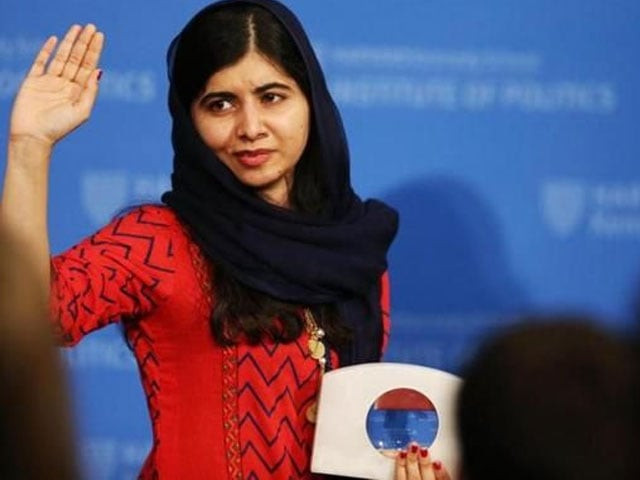
PHOTO: TWITTER
The 21-year-old was awarded the 2018 Gleitsman Award from the Center for Public. She said “Right now, there are 130 million girls who do not have access to a quality education. We should all make it our challenge to challenge those critical views, all those religious beliefs, and all those cultures that deny us an education.”
The Harvard Kennedy School’s 2018 Gleitsman International Activist Award, which comes with a $125,000 prize was awarded to Yousafzai for her work promoting girls’ education.
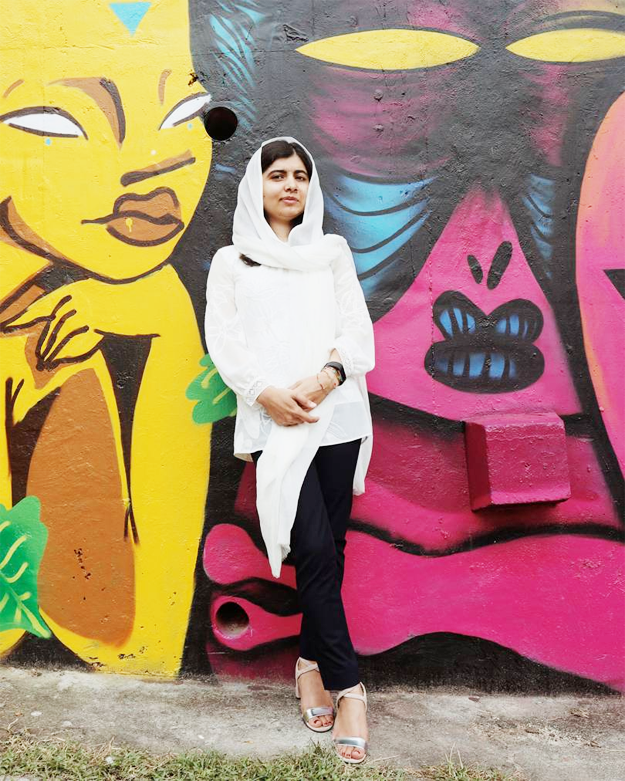 PHOTO: BRITISH VOGUE
PHOTO: BRITISH VOGUEThe Gleitsman Award, whose previous recipients include South African President Nelson Mandela, is awarded biennially to an individual who has “sparked positive social change and inspired others to do the same,” according to the Kennedy School’s website.
After accepting the award, Yousafzai gave a short speech followed by a discussion with the audience, moderated by Samantha Power, the former United States ambassador to the United Nations.
Urging politicians to be more "welcoming" and sympathetic to the plight of refugees, the young activist said, “I think, firstly, don’t greet refugees with tear gas. We should not assume that it is these people’s fault that they are refugees. We should not assume that it is the people's fault that they are refugees.”
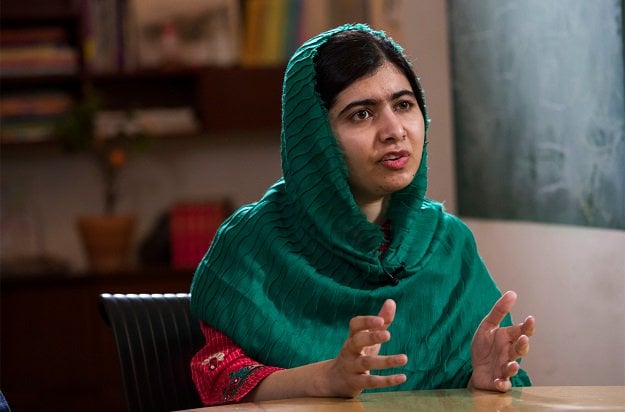 PHOTO: FILE
PHOTO: FILEShe added that the threat of climate change should remind people of the shared humanity of refugees and other at-risk groups. "We need to look at it from the human eye and be more welcoming and consider themselves as our brothers and sisters. And let's understand that we are living on this one Planet Earth, which is already in danger, which is already at a great risk because of climate change.”
When asked by New York Congresswoman-elect Alexandria Ocasio-Cortez what role men play in the liberation of women, Yousafzai said, “A very large amount of successful women, whether they’re female CEOs of Fortune 500s, or female heads of state, one of the most … common things that they talk about is that they all report a strong relationship with their fathers.”
Giving an example of her father, Yousafzai said that growing up in an environment in which women had almost no rights, he became a wholehearted supporter of his daughter’s work.
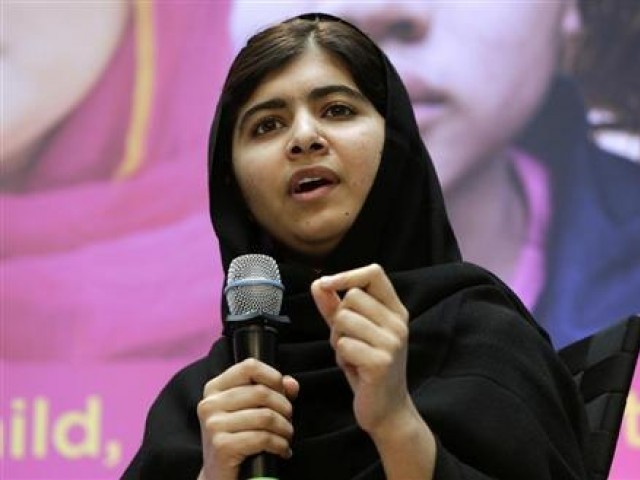 Malala Yousafzai, 16-year-old Pakistani campaigner for the education of women, PHOTO:REUTERS
Malala Yousafzai, 16-year-old Pakistani campaigner for the education of women, PHOTO:REUTERS"He knew that it was unfair and he knew that he had to change, so he challenged himself first and said, I am not going to treat my daughter this way and send her to school and let her speak out.” She continued, “Empowering women is not just giving something to women, but it also contributes to our economy, to everyone else.”
In an earlier interview, Yousafzai called it a great honour to be back at Harvard, five years after first visiting the University to receive the Harvard Foundation’s Peter Gomes Humanitarian Award.
She urged students to devote more time and effort towards promoting girls education. “The world needs this generation, especially who are receiving quality education in such incredible institutions, to actually go back and invest in their communities,” she said. “To go back and invest the skills they are learning here, the talent they are developing here. When you have something and you don’t use it, it’s of no benefit.”
Have something to add to the story? Share it in the comments below.

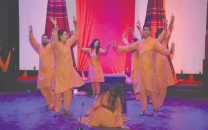
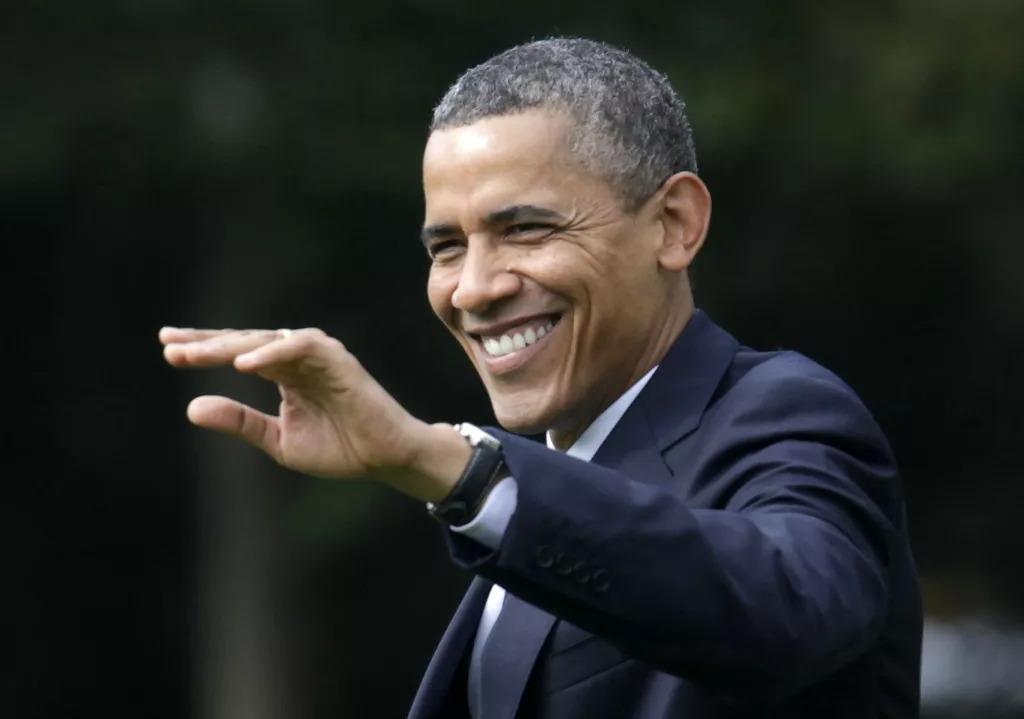

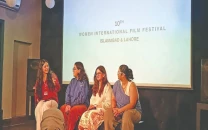

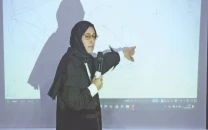











COMMENTS
Comments are moderated and generally will be posted if they are on-topic and not abusive.
For more information, please see our Comments FAQ